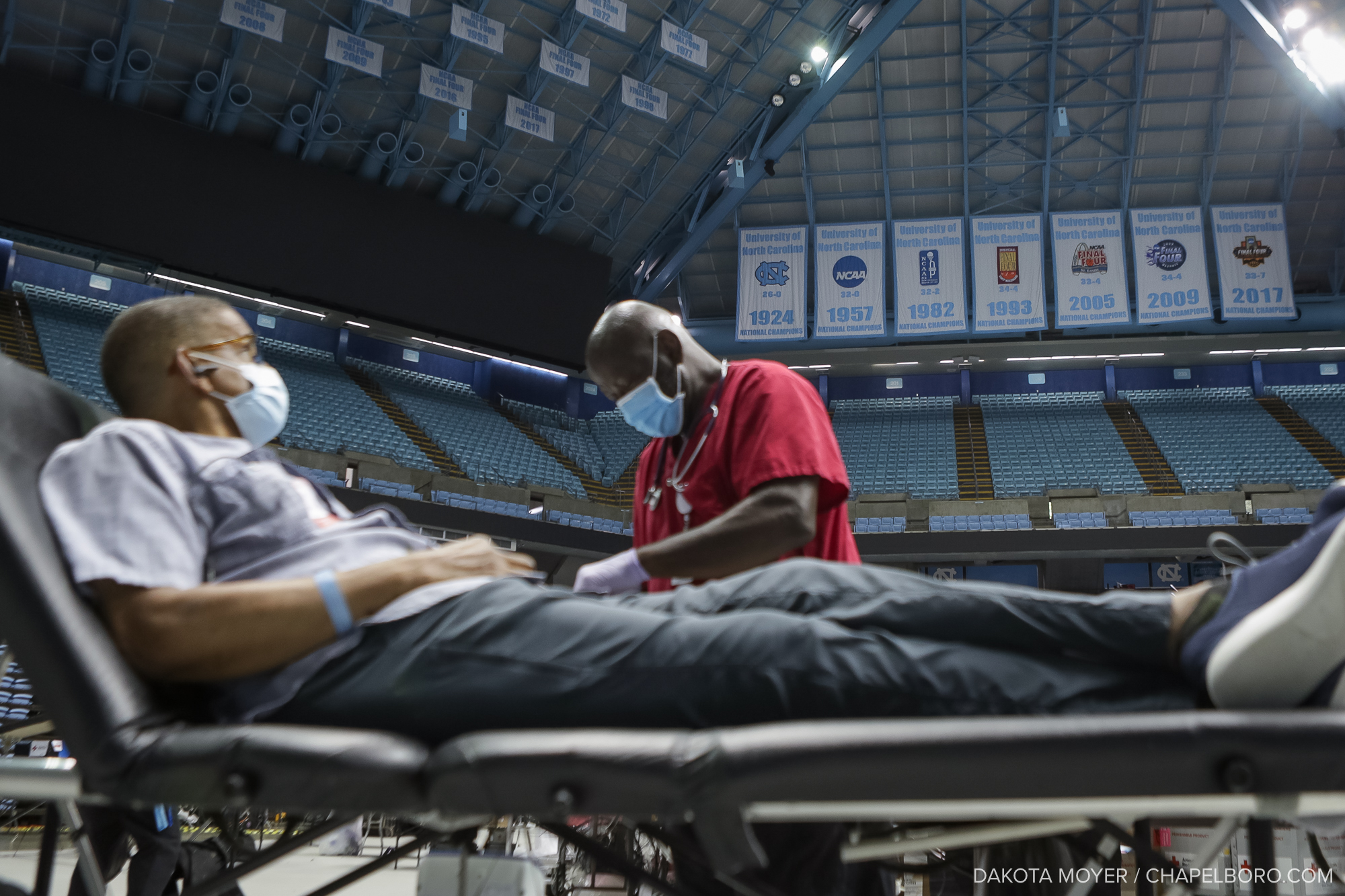
The Orange County Behavioral Task Force recently shared detailed recommendations with the Orange County Board of Commissioners (BOCC) for the development of a Crisis and Diversion Facility.
The task force was formed in April 2019 after thirty community stakeholders from the criminal justice, health care, behavioral health and housing system participated in the Orange County Sequential Mapping Workshop.
The workshop was designed to inform and address community-based responses to the involvement of individuals with behavioral health issues and intercepts within the criminal justice system.
The mission of the task force is to improve outcomes for those with behavioral health disorders by partnering with law enforcement, mental health, homelessness and substance use service systems.
“Very quickly, it became clear that the lack of a Crisis and Diversion Facility was a priority gap,” co-chair of the task force and Criminal Justice Research Department Director Caitlin Fenhagen said. “There are facilities like this in neighboring counties, but we didn’t have one despite having a world-class hospital here.”
In April 2021, the BOCC received findings from the task force stating that the Crisis and Diversion Facility will lead to necessary enhancements in Orange County crisis system capabilities and divert people who are in a behavioral health crisis from the emergency room or detention centers.
Since then, the task force has focused on the next phase of implementation for the Crisis and Diversion Facility through a specific focus on stakeholder use, operational needs and facility design specifications.
Tony Marimpietri, chairperson of the project, said the task force hopes to begin construction of the facility by 2023. The county has not yet identified a location for the facility but plans to do so after they determine preliminary design and costing.
Renee Price, Chair of the Orange County Board of Commissioners, spoke with 97.9 The Hill about the task force’s work and recent presentation. She said the project is a community issue and added that the facility will support children as young as 4 years old.
“People need treatment. They don’t need bars, they don’t need handcuffs, closed doors,” Price said. “They need help. And that’s what we want to do.
Lead photo via Modern Healthcare.
Chapelboro.com does not charge subscription fees, and you can directly support our efforts in local journalism here. Want more of what you see on Chapelboro? Let us bring free local news and community information to you by signing up for our biweekly newsletter.
Related Stories
‹
![]()
As The Epidemic Worsens, A UNC Doctor Details The Battle Against EbolaAs the world faces the worst Ebola outbreak yet, a UNC doctor describes the challenges he faced in West Africa fighting to save victims from the deadly disease.
![]()
Equity in Health Care - December 11, 2025What is the state of health care today, both nationally and here in our community? And what needs to be done to address disparities?

'Huge Benefit': UNC Eastowne Development Approved by Chapel HillChapel Hill Town Council members reached a nearly unanimous vote to approve UNC Health’s proposal to build new medical buildings on its Eastowne campus.

As COVID Cases Surge with New Variants, Experts Encourage Bivalent VaccineNorth Carolina last week, compared to 23,322 the previous week. UNC infectious disease specialist Dr. David Wohl said the latest Covid surge is placing stress on hospital systems, clinics and workplaces.

Red Cross Still Encouraging People to 'Roll Up Their Sleeves' in 2023January is National Blood Donor Month, and although the Red Cross is no longer urgently calling for donations, there is always a need for blood.

UNC Researcher Talks Monitoring Kids' Online RelationshipsResearcher Dorothy Espelage says this school year it’s more important than ever to talk to your child about healthy relationships.

Lead Detection in UNC Library Leads to Removed FountainsAfter detecting lead in multiple tests, UNC announced it is removing several drinking fountains from Wilson Library. The University’s Office of Environment, Health and Safety shared the news in an email to the campus community on Thursday around 3:30 p.m. “Other drinking fountains in the building were tested, showed no detectable levels of lead and […]

As NC Monkeypox Cases Rise, Mayor Seils Urges Those Eligible to Get VaccinatedMayor Damon Seils and a UNC student both received their monkeypox vaccine and are encouraging others to do the same.

Chatham County Roundup: Karen Howard, Chair of the Chatham County Board of CommissionersChair of the Chatham County Commissioners Karen Howard joined 97.9 The Hill’s Brighton McConnell on Tuesday, June 7 for the latest Chatham County Roundup. This time, Howard discussed managing growth in the community, the academic year finishing up and previewing a key meeting with Pittsboro leaders. Below is a transcript of the conversation edited for […]

Orange County Plans to Build Crisis and Diversion FacilityThe Orange County Behavioral Task Force recently shared detailed recommendations with the Orange County Board of Commissioners (BOCC) for the development of a Crisis and Diversion Facility. The task force was formed in April 2019 after thirty community stakeholders from the criminal justice, health care, behavioral health and housing system participated in the Orange County […]
›









